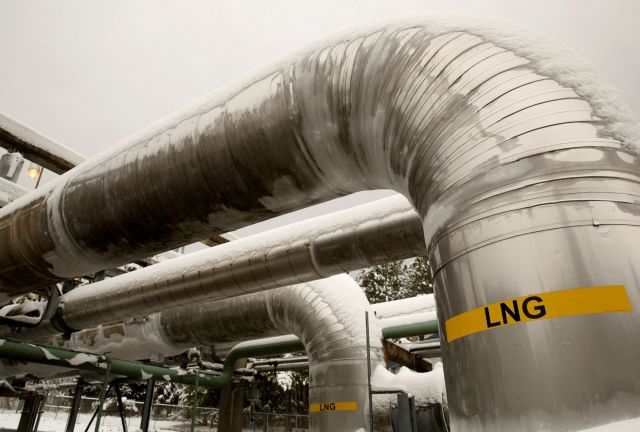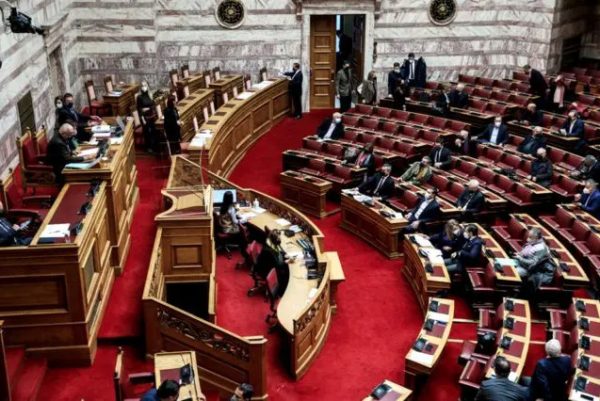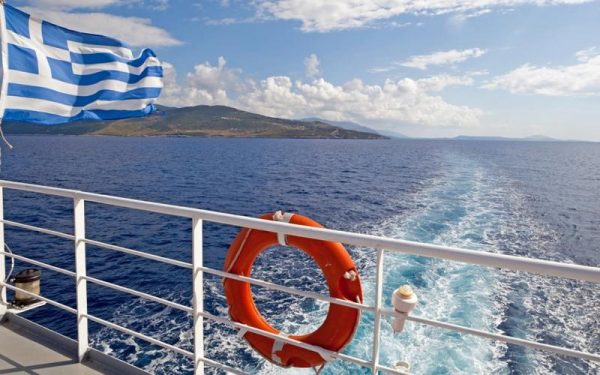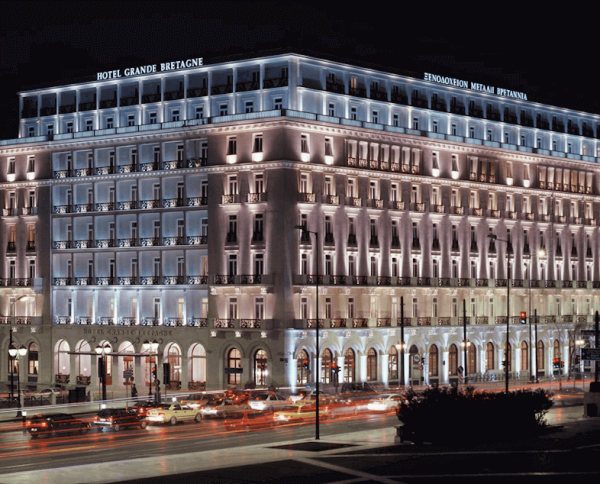
Νatural gas transmission system operator DESFA and the Regulatory Authority for Energy RAE are proceeding with the implementation of the government decision for the installation of the additional floating liquefied natural gas (LNG) tank at the Revythousa terminal.
According to sources, the necessity of developing the fourth storage space in Revythousa is great due to the possibility of a violent interruption of the supply of Russian gas. In such a scenario, Revythousa will be called upon to replace Gazprom’s quantities, especially next winter, when energy consumption will be increased. Therefore, the LNG terminal will have to be flexible in order to supply τηε grid more quickly and with more ships in order to achieve uninterrupted gas supply to the National Transmission System.
According to sources, two alternatives are being considered. The first solution is to rent a tanker for 12 months, which can be ready in two months and the second solution is its permanent installation.
RAE, according to the same circles, will be asked to give the answer as to which solution is preferable.
Gas safety stocks
With the European Commission proceeding to establish the obligation of the EU member states. to maintain gas reserves in quantities equal to 15% of their consumption, our country is in a particularly disadvantaged position.
According to the promoted legislation, the safety reserves should be kept in underground gas storages coming from pipelines.
Greece does not have such underground storage abilities and DESFA is in talks with the Italian firm Snam to rent space in the warehouse of the Italian Administrator in order to store domestic reserves. In addition, all the necessary procedures must be carried out so that if our country needs this gas it can come within our borders through the TAP pipeline.
Subterranean storage in South Kavala
However, according to competent government sources, the case of the development of the Underground Natural Gas Storage of South Kavala – which could be used for security reserves – still has a long way to go.
Circles of the Ministry of Environment and Energy noted that in order to exploit this infrastructure, the new data brought by the war will have to be reviewed. For example, the estimates that want to fill the storage unit will require 500 million euros with gas prices at such heights and in combination with the necessary investments to convert the depleted deposit into a warehouse, the cost amounts to 1 billion euros. Costs that should be borne by investors and consumers.
Thus, the cost-benefit study prepared by RAE should be reviewed, the same sources add. In addition, it must be taken into account whether the obligation to maintain security stocks will be valid until the end of the war or will be consolidated.
Based on this information, the goal set by the Hellenic Republic Asset Development Fund for the conduct of a concession tender of for the subterranean unit in Kavala that set for the end of May seems to go be set for further down the road.
Although the need for storage space has been highlighted at European level as well as the de facto risk of a cut in Russian gas supply, the government is said to be in no hurry for this solution…
It should be noted that RAE has posted the texts of the cost-benefit study of the project and the pricing regulation of the unit, however so far it has given two extensions to the public consultation. The reassessment of the data is expected to further stress the HRADF bidding process.
Latest News

DM Dendias: We talk With Turkey But We Always Bring Up Their Unacceptable Positions
Second and last day of closely watched conference, entitled 'Metapolitefsi 1974-2024: 50 Years of Greek Foreign Policy', also included appearances by PM Mitsotakis, Ex-PM Tsipras and PASOK leader Nikos Androulakis, among others

Rhodes Airport Tops Fraport Greece’s Regional Airports in 2024 Performance
According to Fraport's data, more than 35 million passengers (specifically 35.2 million) were handled by Fraport-managed airports during the 11 months.

European Central Bank Cuts Interest Rates by 25 Basis Points
It is the fourth cut of interest rates by Europe’s central bank, a move expected by the markets and financial analysts leading to the rate settling at 3%.

Airbnb: New Measures Add €600 in Extra Costs for Property Owners
Property managers face an immediate administrative fine of 5,000 euros if access to the inspected property is denied or any of the specified requirements are not met.

Economist: Greece Included in the Best Performing Economies in 2024
Meanwhile, Northern European countries disappoint, with sluggish performances from the United Kingdom and Germany.

EasyJet Expands Its Routes from Athens
The airline’s two new routes will be to London Luton and Alicante and they will commence in summer 2025.

Capital Link Forum Highlights Greece’s Economic Resurgence; Honors BoG Gov Stournaras
Capital Link Hellenic Leadership Award recipient, Bank of Greece Gov. Yannis Stournaras, an ex-FinMin, was lauded for his pivotal role during Greece’s economic recovery

Tourist Spending in Greece Up by 14%, Visa Card Analysis Shows
Greece’s capital Athens emerged as the most popular destination, recording a 17% increase in transactions with Visa cards, surpassing even the cosmopolitan island of Mykonos.

Inflation in Greece Unchanged at 2.4% in Nov. 2024
The general consumer price index (CPI) posted a 0.4% decrease in November compared to the previous month

2024 Christmas Holidays: Extended Shop Hours Schedule
The 2024 Christmas Holidays extended shop hours schedule commences on Thursday, December 12 and runs until the end of the year.

![Φυσικό αέριο: Δυναμικό come back του LNG στην Ελλάδα [γραφήματα]](https://www.ot.gr/wp-content/uploads/2023/01/OT_naturalgas-90x90.jpeg)












![Fraport: Πάνω από 35 εκατ. επιβάτες στα αεροδρόμια το 11μηνο – Πτώση στη Μύκονο [πίνακας]](https://www.ot.gr/wp-content/uploads/2022/06/fraport-90x90.jpg)


















![Φυσικό αέριο: Δυναμικό come back του LNG στην Ελλάδα [γραφήματα]](https://www.ot.gr/wp-content/uploads/2023/01/OT_naturalgas-600x474.jpeg)








 Αριθμός Πιστοποίησης Μ.Η.Τ.232433
Αριθμός Πιστοποίησης Μ.Η.Τ.232433